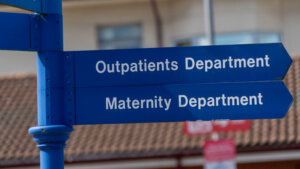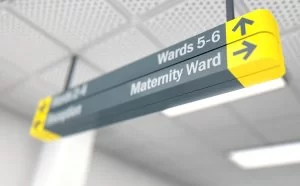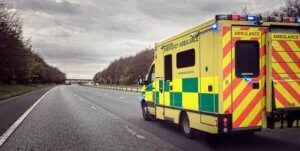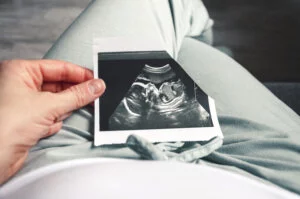Ambulance Delays Affecting Rapid Patient Treatment
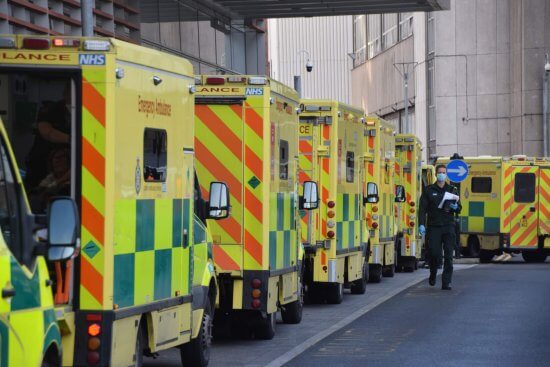
Contact
Table of Contents
Failure to Meet Ambulance Response Targets
In 2017, the Secretary of State for Health accepted the new ambulance performance standards recommended by NHS England, meaning that the 11 ambulance services now operate within 4 distinct categories of response, ranging from Category 1, which is ‘life-threatening’ to Category 4, which is ‘non-urgent’. The category allocated to the initial emergency call dictates the speed that ambulances must respond. For Category 1 calls, ambulances are expected to respond within 7 minutes on average, and to 90% of calls within 15 minutes.
Unfortunately, these targets are not being met. The press has recently spoken of continued delays with ambulance services for individuals who are in need. Specifically, it has been stated that the North East Ambulance Service in particular still requires improvement regarding the delays people within the UK are experiencing.
It has been reported that on average in 2022, it was taking 90 minutes for an ambulance to arrive for cardiac patients in England. For victims of serious illnesses such as strokes and heart attacks, ambulance delays need to be avoided, as they can have a severe impact on the life of the individual in need.
Ambulance delay leads to death
In some cases, it is clear that the damage to the individual’s health could have been prevented but for the delays. The family of a 73-year-old doctor and NHS campaigner called for an investigation after it took paramedics more than half an hour to arrive at the scene after the operators were told he was in cardiac arrest. His son said, “It took 35 minutes from the ambulance call and 30 minutes from the cardiac arrest before paramedics got to the flat. By then, it was too late. He almost certainly would have survived if the ambulance had arrived according to normal, acceptable response times.”
Rising numbers of 999 calls
Part of the problem behind the failed response times is the increasing number of 999 calls. In June 2021, the Northwest Ambulance Service took more than 155,000 emergency calls, representing 48,000 more than during the same time in June 2020 and 23,000 more than in 2019. In addition, patients making the calls are more seriously ill or injured, with Category 1 incidents increasing by 27% compared to the previous year.
There is also concern that due to the high volume of calls, some people dialing 999 have to wait up to 10 minutes before their call is answered, leading staff to warn that there is a chance of patients coming to harm while waiting for their call to be picked up. One call handler said, ‘It doesn’t bear thinking about what could be on the other end of those phones trying to get through’.
Ambulances queuing outside Accident and Emergency
As well as dealing with a high number of calls, once patients are picked up, ambulances take longer to hand over patients from their care as hospitals struggle with unprecedented patient numbers. The College of Paramedics chief executive said that some ambulance crews had waited up to 9 hours to transfer a patient to hospital. Naturally, this has a knock-on effect on the ability for ambulance teams to respond to incoming emergency calls.
Recently a major incident was declared in Truro, Cornwall, when 26 ambulances were parked overnight outside the hospital’s A and E department. An anonymous paramedic said, ‘The hospital does not have the capacity to take the patients stacked in the system […] so patients have to wait for many hours in ambulances outside the hospital. We cannot meet the standards we must achieve, and patient care suffers. We are tired, frustrated and demotivated, with rock bottom morale.’.
Inappropriate 999 calls exacerbate the ambulance delays
As well as rising numbers of emergency calls and backed-up patient handovers, the ambulance service also suffers from a slew of calls from patients who cannot see their GP or are fed up waiting on hold to get advice from the 111-telephone line. There are inappropriate calls, such as the person who called 999 as they did not know how to turn on their oven, and the other who rang because they had shampoo in their eyes. As one paramedic said, ‘We were sent to a broken acrylic fingernail that was hurting. It will be reported as something entirely different. When you get there, you find out what has happened’.
Staff and funding shortages throughout the NHS
It is evident that hospital patient care delays significantly impact emergency crews’ ability to attend to life-threatening situations. The entire NHS system was already under immense pressure before COVID. The pandemic increased the strain and led to more people making ambulance negligence claims.
Can you make a claim for an ambulance delay ?
If you or someone you know has experienced ambulance delays which have impacted the outcome of your health, then medical negligence may be proven in some cases.
To prove this, there would need to be:
- An act which has fallen below a reasonable standard of care.
This can include an ambulance delay.
- This failure would need to have caused the patient to have a worse outcome than they would have, if the initial failure had not taken place.
Unless there is a causal link between the ambulance delay and the worsening condition, then the claim due to ambulance negligence is unlikely to be successful.
How Osbornes Law can help
Sadly, many people are contacting our specialist medical negligence lawyers following a delay in the treatment of a health problem due to ambulance delays. In some cases, the delay in treatment can amount to negligent care. Therefore, our experienced lawyers can advise you on whether a claim can be pursued against. Please contact our clinical negligence team for an initial consultation.
Osbornes Law recently represented a family seeking justice after a loved one tragically died following ambulance delays. Read the full case study here.
Share this article
Osbornes has a skilled team of solicitors advising clients on a wide range of clinical negligence matters.
Hard working, approachable, good knowledge of clinical negligence and clients’ specific conditions
A joy to work with and always 100% client focused at all times.
The clinical negligence team at Osbornes is much lauded for its ability to ‘represent the diverse range of London-based clients
Stephanie has developed a particularly strong reputation for her handling of birth injury claims, as well as cases concerning surgical negligence and delays in surgery.
"An excellent firm which achieves fantastic outcomes for clients."
"Stephanie Prior takes on complex cases and gets excellent results. She has a background in medicine which serves her clients well and is a realistic but tough litigator."
"Stephanie Prior is hugely dedicated, adored by her clients, tenacious, efficient and extremely knowledgeable."
"Stephanie Prior is very good with troubled clients and is easily able to make them feel at ease."
"Stephanie shows sensitivity and deals with things in an understanding way."
Osbornes provides a very intimate and personal client service which is increasingly rare in this sector.
The lawyers in the team are highly experienced and will drive cases very hard on behalf of their clients.
"Stephanie Prior has a realistic attitude to the complexities of the cases. She wins the trust of her clients and goes the extra mile to ensure they get the best outcomes."
"Stephanie Prior... manages a varied caseload, including obstetric claims, child and adult brain injury cases and fatal and non-fatal spinal cord injury cases."
"Stephanie is experienced, knowledgeable of all aspects of clinical negligence work, and strategic in running cases."
"The team were extremely professional in putting my needs first. There was a joined-up approach to catering for the client, and all lawyers involved were briefed and constructive."
Stephanie Prior is always very professional and kind. Highly recommended.
Quite simply excellent, with a highly competent and well-rounded team. They understand complex medical litigation and have been our lifesavers, and we will always owe them our immense gratitude.
Related InsightsVIEW ALL
- 13.5.2025
Damages Recovered for Necrotic Pressure Sore
Elline Demetriou recovers damages following a necrotic pressure sore on her client’s heel Elline Demetriou, Solicitor in our clinical...
Read more - 12.5.2025
Complaints Against Suspended Surgeon Ms Kuldeep Stohr
Ms Kuldeep Stohr, orthopaedic surgeon at Addenbrooke’s Hospital suspended In February 2025, Cambridge University Hospitals NHS Foundation Trust (CUH) confirmed...
Read more - 6.5.2025
Six-Figure Settlement for Negligent C-Section Delivery
Osbornes secures a six-figure settlement following a negligent caesarean section delivery Jodi Newton, Partner and head of our Obstetric and...
Read more - 6.5.2025
Six-Figure Settlement for Negligent Shoulder Surgery
Settlement following a claim against Bedfordshire Hospitals NHS Foundation Trust Elline Demetriou, a Solicitor in our clinical negligence team, acted...
Read more - 29.4.2025
Five-Figure Settlement in Fatal Medical Negligence Case
Osbornes Law secures a five-figure compensation following a fatal medical negligence claim Osbornes acted for our client, E, who brought...
Read more - 4.4.2025
Time To Move On From Physician Associates?
BMA raises concerns over patient safety: the risks of Physician and Anaesthesia Associates in the NHS The British Medical Association (...
Read more - 13.3.2025
Addenbrooke’s Hospital Complaints
Review finds harm to children by surgeon at Addenbrooke’s Hospital An independent review by Cambridge University Hospitals NHS Foundation...
Read more - 4.2.2025
Claim Settled for Child’s Surgery Injuries
Osbornes secures settlement for child’s surgery-related injuries Osbornes Law successfully represented a minor, X, in a claim against two...
Read more - 29.1.2025
£27,000 DVT Claim Settled Against Royal Free London NHS
Successful settlement for DVT case against Royal Free London NHS Foundation Trust Successful Settlement of £27,000.00 for DVT Claim against Royal...
Read more - 14.10.2024
Multi-Million Settlement in Cerebral Palsy Negligence Case
Judge awards multi-million settlement in cerebral palsy medical negligence claim Jodi Newton, Partner and specialist medical negligence lawyer at Osbornes...
Read more - 19.9.2024
Report highlights failings in maternity care
The Care Quality Commission (CQC) has recently carried out a national review of 131 maternity inspections between 2022 and 2024, finding that failures...
Read more - 12.9.2024
Great Ormond Street Hospital Negligence & How to Claim
Review of negligence at Great Ormond Street Hospital At Osbornes Law, we’ve supported families through some of the most...
Read more - 29.8.2024
AB v Central London Community Healthcare NHS Trust
Background Our client, AB, had been using the Nexplanon contraceptive device for 6 years. She had a Nexplanon device inserted into...
Read more - 30.7.2024
What Is the Role Of a Physician Associate?
What does the Position of Physician Associate Mean for the NHS? There are many different jobs within the NHS, each...
Read more - 17.7.2024
Settlement for Delay in Wrist Fracture Treatment
Our Clinical Negligence team have recently agreed the settlement of a case relating to a delay in the treatment of...
Read more - 28.6.2024
£55,000 Settlement for Stillbirth Claim Against Chelsea and Westminster...
Successful Settlement for Stillbirth Claim Against Chelsea and Westminster Hospital NHS Foundation Trust Background Nick Leahy, an Associate in our...
Read more - 9.5.2024
Claim Against Royal Free London NHS Foundation Trust...
Client obtains settlement after being victim of a surgical negligence Jodi Newton, Partner in our Clinical Negligence department, recently settled...
Read more - 30.4.2024
Settlement In Neonatal Death Case
Settlement in fatal medical negligence case against King’s College Hospital Nick Leahy, Associate in our Clinical Negligence department, recently...
Read more - 8.4.2024
Epilepsy Negligence Compensation Claim
Nicholas Leahy, an Associate in the Clinical Negligence team at Osbornes Law, has recently settled a long-running fatal medical negligence...
Read more - 11.1.2024
New UK Supreme Court Ruling regarding Secondary Victims...
The Supreme Court has today, on the 11th January 2024, upheld the Court of Appeal’s order to dismiss the claims...
Read more - 11.1.2024
Secondary Victim Claims
Secondary victims in clinical negligence cases What is a secondary victim in clinical negligence cases? Most compensation claims are concerned...
Read more - 5.1.2024
Delayed Pre-Eclampsia Diagnosis Results in Loss of Baby
Introduction to the case Nick Leahy, Associate in our Clinical Negligence department, has recently settled a birth injury claim against...
Read more - 12.12.2023
NHS Compensation Payouts Guide
What Are NHS Compensation Payouts? In the UK, the National Health Service delivers the vast majority of healthcare services. When...
Read more - 23.11.2023
Claim against Bradford Teaching Hospitals NHS Foundation Trust
High-risk pregnancy following previous miscarriage Osbornes acted for a Claimant, C, in her birth negligence claim against Bradford Teaching Hospitals...
Read more



